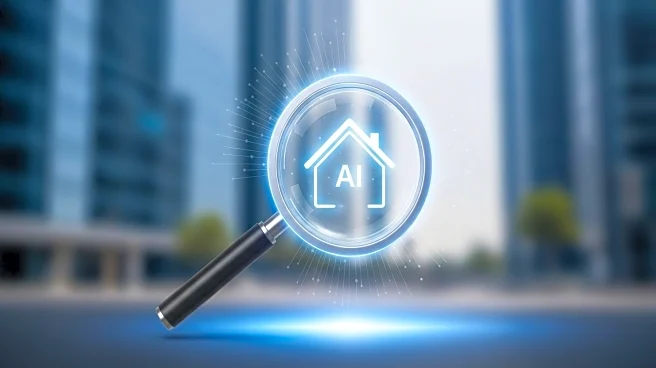What's Happening?
A significant shift is occurring in the real estate market as potential home buyers increasingly turn to artificial intelligence and social media platforms for information. According to a survey by Realtor.com, 82% of buyers are utilizing AI in their research, with ChatGPT and Gemini being the most popular platforms. Social media also plays a crucial role, with 90% of buyers finding value in platforms like YouTube and Facebook. Among Generation Z, TikTok is particularly influential, with 76% relying on it for housing trends. Despite the rise of digital tools, real estate agents remain a vital resource, with 62% of buyers considering them smarter than AI and social media.
Why It's Important?
The integration of AI and social media into home buying processes signifies a transformative shift in how consumers approach real estate decisions. This trend could reshape the industry by influencing how real estate agents, marketers, and platforms engage with potential buyers. As digital tools become more prevalent, they offer personalized experiences and broader access to information, potentially democratizing the home buying process. However, the continued reliance on real estate agents highlights the enduring value of professional expertise, suggesting a hybrid model where technology complements human insight. This evolution may impact market dynamics, pricing strategies, and consumer expectations.
What's Next?
As AI and social media continue to gain traction, real estate professionals may need to adapt by integrating these technologies into their services. This could involve offering AI-driven insights alongside traditional consultations to enhance the buyer experience. Additionally, platforms like Realtor.com might expand their digital offerings to cater to tech-savvy consumers. The ongoing development of AI tools could lead to more sophisticated applications in real estate, potentially improving accuracy and personalization. Stakeholders in the industry will likely monitor these trends closely to capitalize on emerging opportunities and address challenges related to AI reliability and data privacy.
Beyond the Headlines
The growing reliance on AI and social media in real estate raises ethical and legal considerations, particularly concerning data privacy and the accuracy of AI-generated content. As these technologies evolve, there may be increased scrutiny over how data is collected, used, and protected. Furthermore, the shift towards digital tools could influence cultural perceptions of home buying, emphasizing convenience and accessibility. Long-term, this trend might lead to changes in urban planning and housing development, as consumer preferences evolve in response to technological advancements.










